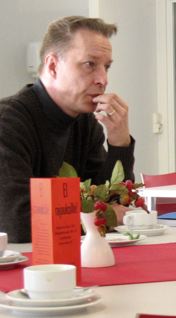I was downtown last week when I bumped into a woman I haven’t seen for ages. We were just outside a coffee shop, and we both had time, so we went inside to enjoy a chat. I’d just sipped my cappuccino and glanced up as Megan began to tell me about an accident her brother had a month or so ago.
And I knew exactly what she was going to say!
The eeriest feeling came over me as my mind was jumping ahead of her sentences and I only just stopped myself from completing them for her. I haven’t seen Megan for at least two years and I only knew her brother as a little boy when we were all at school together. I couldn’t have known about his accident …… could I? Was this what people call déjà vu?

If it was, then I had just become one of the nearly 70 percent who admit to getting this feeling at least once in their lives.
A higher percentage occurs in people 15 to 25 years. Anyway, the sight, sound, taste or even smell of something leads us to think that we’ve experienced before, although we know that we couldn’t have.
Déjà vu is a French term that literally means “already seen” and it has several variations, including déjà vécu, (already experienced); déjà senti, (already thought); and déjà visité, (already visited). French scientist Emile Boirac, one of the first to study this strange phenomenon, gave the subject its name in 1876.
There are more than 40 theories as to what déjà vu is and what causes it, and they range from reincarnation to lapses in our memory processes.
I’m still trying to work out why I knew what Megan was going to say. I even knew what the coffee shop was going to look like, although I can’t ever remember being in there before.
The most common misuse of the term déjà vu seems to be with precognitive experiences — experiences where someone gets a feeling that they know exactly what’s going to happen next, and it does. But it is important to remember that déjà vu is experienced during an event, not before. Precognitive experiences — if they are real — show things that will happen in the future, not things that you’ve already experienced.
Hallucinations that are brought on by illness or drugs sometimes bring a heightened awareness and these are confused with déjà vu. False memories that are brought on by schizophrenia can be confused with déjà vu as well. Unlike true déjà vu, which typically lasts from 10 to 30 seconds, these false memories or hallucinations can last much longer.
I don’t think I was having a hallucination! Actually, scientists don’t all agree about why these experiences happen. Déjà vu occurs in individuals with and without a medical conditions.
Several psychoanalysts attribute déjà vu to simple fantasy or wish fulfillment, while some psychiatrists ascribe it to a mismatching in the brain that causes the brain to mistake the present experience for something similar that has happened in the past. Hence the feeling of familiarity. Then again, many parapsychologists believe it is related to a past-life experience that may have been repressed or forgotten.
I know that I had an eerie experience in that coffee shop but it looks as if there’s a lot more investigation to be done before I can tell you, for certain, why.




